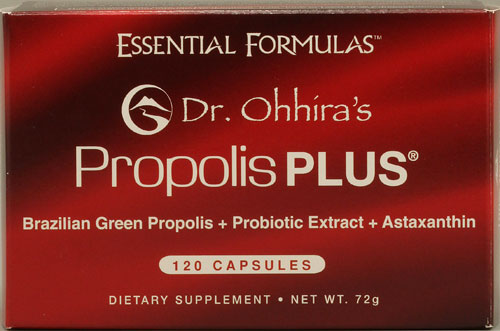Immune health has been one of the hottest topics in the wellness world since COVID-19 broke out across the globe. Antibacterial soap,
hand sanitizer and
vitamin C have flown off the shelves, people are wising up to the fact that stress and sleep really
do matter when it comes to our ability to ward off illness, and washing our hands has become more of a major concern than an “oh that” afterthought.
And yet, as keen as we are on
boosting our immune system, one factor is often missing from the equation: The critical connection between our gut health and immunity.

But, first: What is “gut health?”
While it might not be an issue to bring up on a first date, “
gut health” has been making its way into more and more conversations, particularly amongst health care professionals. For a good reason, too: The efficacy of your digestive system affects everything from the quality of your skin to your outlook on life.
This is because the gut is a more integral part of health than some may realize. Everything that you consume—from that cup of coffee to that bowl of hummus—passes through your gastrointestinal tract, a tube-shaped band that can be up to thirty feet long in adults. (Imagine that.) This tract is covered in thin, gluey mucous that contains millions of bacteria that live, grow, digest and absorb in an intricate matrix of
good and bad bacteria.
Good bacteria, as it implies, ensures that what you eat enters your bloodstream and is delivered as nutrients throughout your body. Bad bacteria, on the other hand, may result in a host of health issues, including Crohn’s disease, ulcerative colitis and irritable bowel syndrome.
Gut and immune system health—the crucial connection
Beneficial bacteria—the one that you want to dominate in your gut—influences the state of your immune system. In recent years, scientists have drawn a close link between your two brains: The one in your head, and the one that resides in your gut (giving, of course, whole new meaning to the phrase “gut instinct”).
This second brain, which is comprised of the complex, dense nerves around your GI tract, is known as the enteric nervous system; it, in addition to the bacteria in your GI tract, make up your “gut microbiome.” This gut microbiome plays an essential role in myriad functions, from the way you think and feel to the amount of energy you’re managing to derive from food to your immune system.
Indeed, your immune system and your gut microbiome are in constant communication (in what’s called a bi-directional, or symbiotic, relationship), sending out signals that moderate your neurotransmitters, hormones—and, yes, your immune cells. Meaning? The robustness of your gut directly impacts your immunity and your body’s ability to combat toxins and infections.
So how can I enhance the health of my gut microbiome in the name of immune health?
Good question. Here are 5 ways to support your gut microbiome and, by turn, your immune system:
1. Stock up on ancient grains
Given that the state of your internal ecosystem determines the ratio of good and bad bacteria in your gut, it’s vital to nourish yourself with health-promoting foods. Chief among them?
Grains—and, in particular,
ancient grains.
As Harvard Health describes them, “Unlike modern grains such as wheat, corn, and rice, ancient grains have never been processed through hybridization or genetic modification; they’re grown just as they were a thousand years ago.” As such, they pack a powerful nutritional punch, supplying you with everything from protein and vitamins (and more so than modern grains).
Most of all, they’re an excellent source of fiber, which nutritional biochemist Shawn Talbott, Ph.D., claims is “the number-one way to improve microbiome balance.” This is because fiber is believed to fuel good bacteria and starve harmful bacteria. Look for gluten free grains such as
wild rice,
amaranth,
millet and
quinoa.
2. Drink pomegranate juice
Pomegranate—that cheery-red, luscious fruit overflowing with pulpy, edible seeds—doesn’t just brim with vitamins and minerals. Its plant compounds have an antioxidant effect, which helps your body fight free radical damage and bolsters your immune system.
What’s more, pomegranate functions as a pre-biotic, which aids in helping beneficial bacteria thrive in your gut: A 2015 study published in
Anaerobe revealed that pomegranate juice stimulates the production of
Bifidobacterium and
Lactobacillus, two forms of friendly bacteria that help deter the growth of deleterious bacteria.
One form of the fruit to try?
Vitacost's Pure Juice Concentrate/Pomegranate. It’s chock-full of polyphenols and other antioxidants, which in itself helps build a healthier immune system.
3. Eat fermented foods
Probiotic supplements—which also help friendly bacteria flourish—are a hot commodity, going down as the third most commonly used dietary supplement after vitamins and minerals. And while a
good probiotic supplement can promote digestion and support the immune system, it’s also smart to listen to Hippocrates and let food “be thy medicine.”
Fermented foods act as a natural source of probiotics and may encourage a healthier gut microbiome—and they aren’t as difficult to weave into your diet as you might think. Top your Tuesday night garden burger with mustard and sauerkraut. Order a bowl of miso soup the next time you head out for sushi. Replace your morning yogurt with kefir. Swap that chicken in your stir-fry for tempeh.
And instead of popping into Starbucks for a pick-me-up, drop by your favorite health food store for a
can of kombucha—fermented tea, used for thousands of years, that contains lactic-acid bacteria with probiotic qualities.
4. Ditch the sweets
You’re likely well aware that
sugar can wreak havoc on your health, causing your blood sugar to spike (and then crash) and potentially leading to a higher number on the scale. Here’s another reason to outmaneuver your sweet tooth: Sugar can result in what’s known as gut dysbiosis, an imbalance among your microbiota that may lead to a number of diseases.
To safeguard your gut—and therefore your immune system—snack on low-glycemic fruits when you have a craving for something sugary, such as cherries, grapefruit, apples and pears.
Ban artificial sweeteners from your diet too: Research in mice shows that they change gut bacteria and reduce the amount of valuable bacteria.
5. Get your heart pumping
Exercise doesn’t just make your tummy flatter and more toned: It helps keep your gut microbiome and immune system in shape. A 2019 study published by
Experimental Physiology found that cardiovascular fitness—which you can build through dancing, swimming, power-walking, and more—increases microbiota diversity (this is a
good thing).
Another
study, out of the University of Illinois, determined that exercising for just six weeks could change the composition of your gut microbiome—and for the better. What’s more, exercise slows the release of stress hormones (and stress increases your chances of illness) and, as Medline Plus, reports, “helps flush bacteria out of the lungs and airways,” thus reducing “your chance of getting a cold, flu, or other illness.” In other words, there’s no better time to lace up those running shoes.




